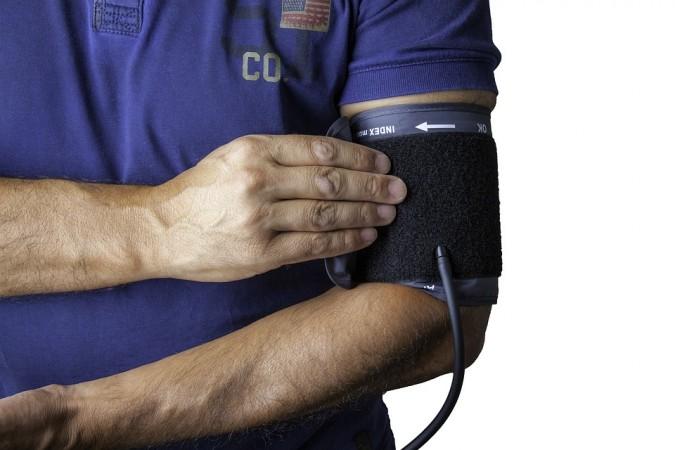
Following a diet that has less salt and more fruits and vegetables helps lower blood pressure within a span of four weeks, and is more effective than medicines, a research has revealed.
ALSO READ: Want to boost your sex drive? Include these foods in your diet
This study was carried out by the researchers from the Harvard University with Lawrence Appel, a professor of medicine at the Johns Hopkins University School of Medicine, as the senior study author.
Consuming less salt, low-fat dairy and fruits and veggies in abundance helps lower BP by an average of 21 mmHg.
Hypertension-lowering drugs have side effects like headaches, dizziness and feelings of fatigue. Majority of these drugs reduce the reading BP by 10-15 mmHg.
ALSO READ: ALSO READ: You can lose weight faster and naturally with this spice
"What we're observing from the combined dietary intervention is a reduction in systolic blood pressure as high as, if not greater than, that achieved with prescription drugs," Dr Appel said.
"It's an important message to patients that they can get a lot of mileage out of adhering to a healthy and low-sodium diet," he added.
In this research, 412 people who were in early-stage hypertension and did not consume high-BP drugs were analysed.
ALSO READ: NASA releases Cassini's 'farewell image' of Saturn and its moons
Some of the participants in this research were given the DASH (Dietary Approaches to Stop Hypertension) diet, which comprises of minimal saturated fat, and lots of fruits, vegetables and low-fat dairy products. Others were given the usual American diet.
All participants were also fed 50 (low), 100 (medium) or 150 (high) mmol/day of sodium in random order over four weeks. Technically, 50 mmol/day is equivalent to 1,150 mg of sodium. A teaspoon of salt is equal to 2,400 mg of sodium.
ALSO READ: Eating star fruit could be harmful; here's why
A diet that includes 100 mmol/day of salt is equivalent to 2,300 mg of sodium — or nearly a teaspoon of salt. This is the maximum level of sodium intake recommended by the US Food and Drug Administration (FDA), and is thought to reduce the risk of heart disease and stroke.
Around one teaspoon of salt is the maximum amount that has been recommended in the US to deplete the risk of heart stroke and ailment.
It was found that participants with high levels of BP who followed the DASH diet for a span of four weeks showed lowered hypertension readings by an average of 21 mmHg.
Participants having lower BP at the beginning of the research too found that their readings had lowered by 5-10 mmHg.
ALSO READ: Do birds and animals fart?
The FDA approves anti-hypertension medication only if they lower blood pressure by 3-4 mmHg, a Daily Mail report said.
Blood pressure is lowered by medicines like ACR inhibitors, beta blockers and calcium blockers.
ALSO READ: 19-year-old American model sells her virginity for $2.9 million; here's why she did so
"'What we're observing from the combined dietary intervention is a reduction in systolic blood pressure as high as, if not greater than, that achieved with prescription drugs," Dr Appel said.
"It's an important message to patients that they can get a lot of mileage out of adhering to a healthy and low-sodium diet," he concluded.












